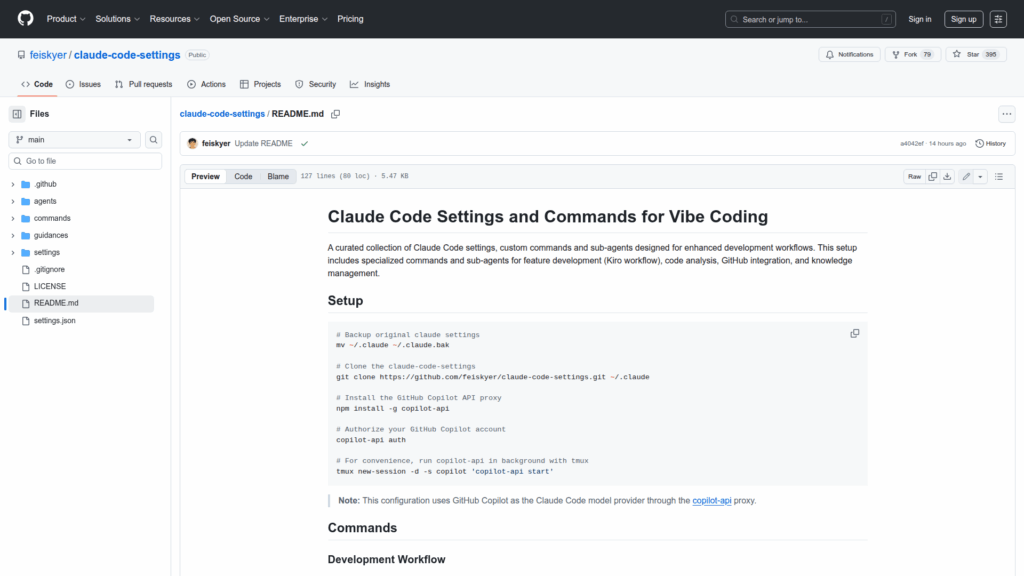Features
Structured Kiro workflow commands for feature work including /kiro:spec, /kiro:design, /kiro:task, /kiro:execute and /kiro:vibe. Analysis and reflection commands such as /think-harder, /think-ultra, /reflection and /eureka for deeper problem analysis and session learning. GitHub integration commands like /gh:review-pr and /gh:fix-issue to assist pull request reviews and issue resolution. A directory of specialized subagents (pr-reviewer, github-issue-fixer, instruction-reflector, kiro-assistant, kiro-feature-designer and others) to delegate focused tasks. Multiple provider settings files (copilot, litellm, qwen, siliconflow, vertex) and guidance documents for connecting to different model gateways. Setup notes for running a copilot-api proxy and limitations guidance regarding Anthropic-specific WebSearch tool availability.
Use Cases
Provides a ready-to-use, opinionated configuration that reduces setup time for teams using Claude Code by bundling commands, agent templates and provider settings. The Kiro workflow and task-oriented commands standardize feature delivery from spec to implementation, enabling faster handoffs and repeatable processes. Built-in agents automate common activities like PR review, issue fixing, instruction refinement and documentation of breakthroughs, freeing developers to focus on higher-level design. Multiple settings let users switch model providers or run a local proxy for Copilot, while guidance sections explain MCP and web search limitations and external MCP options. Overall it accelerates development workflows, improves code review quality and centralizes knowledge capture for engineering teams.








